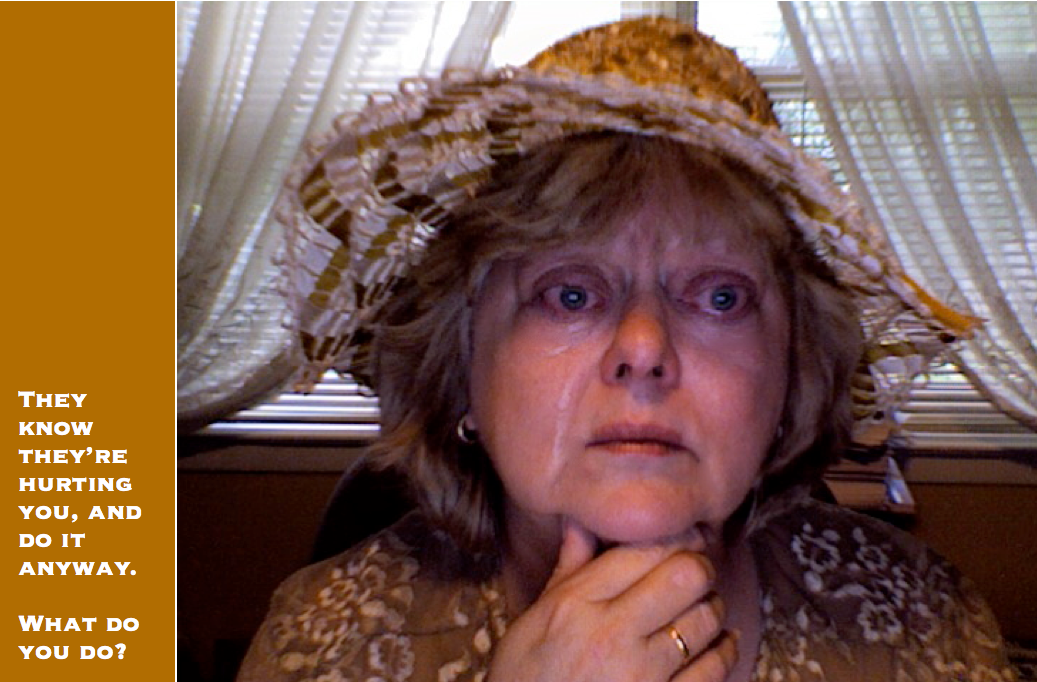Why Christians Should Care About Human Trafficking?
By Vicki Hinze
Author of “Deadly Ties” a novel that explores human trafficking
© 2011, Vicki HinzeDid you know that 94 percent of females forced to perform sexual acts and considered victims of human trafficking are 17 years old and younger?
Did you know 12 percent of trafficking cases are women and men forced into slavery, bondage or involuntary servitude?
Did you know victims are not just immigrants brought to the United States but U.S. citizens are exploiting an estimated 14,000 to 17,000 other U.S. citizens every year?
Those sad and staggering statistics gathered by the U.S. Department of Justice are precisely the reasons why Christians should not only care about the issue of human trafficking but care deeply.
Countries worldwide marked International Human Trafficking Awareness month during January. But my hope is that the awareness continues every day until the practice – that has become a $32 billion industry and rivals illegal drug operations – has such a bright spotlight on it that the victims find freedom and support.
Imagine being held against your will, forced into acts that are not of your choice, at odds with all you believe and it is easy to understand why there is such a staggering rate of drug abuse and suicide among victims of trafficking
In every life, a person eventually wonders, “Why am I here?” People of the Christian faith are given the answer in this conclusion to the purpose of man: “Fear God and keep his commandments, for this is the duty of all mankind.” (Ecclesiastes 12:13) (NIV)
To stand aside and watch another forced to disobey God and His commandments is a dereliction of duty and the antithesis of our principal direction. It ignores the directive of Christ that we love one another.
Victims of trafficking are wounded and broken. Christian principles in active practice demonstrate constructive alternatives. Ones that offer hope and practical tools that implemented in life can aid in healing. It isn’t a matter of saying healing is possible. It’s showing in real life situations how to cope, to adjust your mindset, to draw strength from the positive influences around you as well as faith. Faith, hope, love—all have been beaten or tortured out of victims. But if in an environment where those things thrive and are the driving force in actions and deeds, they can reemerge in victims and give them an opportunity to redefine their lives and the value of those lives.
Throughout the Bible, we see that change and progress is a two-step process. On a personal level, we must seek and then find. We must knock before the door opens. These victims, so battered and bruised and hopeless, have lost sight of that—or perhaps never had sight of that. But caring Christians living the life, walking the walk of faith, can show through their actions that if you do your part, then God will do His part. Ask and you will receive. He will not deny you.
As people of faith, we’ve had relatable experiences. We know that none are beyond His reach. And we know that at some point in time—often many times during the course of a typical life—we all need someone to light up a path to lead us from darkness into the light. We’ve experienced the majesty of faith: incidents that defy explanation, solutions to problems where there simply were no solutions. We’ve seen those lost find Him and find their way.
Yet sometimes people are so broken, the darkness is absolutely void of light, and the broken just can’t see a way out of their situation. This is how I imagine trafficking victims. Held against their will, forced to act in ways they oppose, beaten and broken at the slightest assertion of any opposition, any assertion of their own will. Quickly they learn to survive requires doing what they’re told, when they’re told, in the way they’re told. Hope dies. Darkness envelops them. They’re lost.
Unless someone lights that path, and shows them a path exists that can lead them out of that darkness, they stay lost. Their purpose, their potential will go unfulfilled. As will their opportunity to do their duty to mankind.
Knowing this, knowing our own responsibilities and duties, as Christians how can we not care about these victims? How can we not care about human trafficking? *
*This article was first published by Baptist Standard on February 3, 2011.
Learn more about Human Trafficking.





